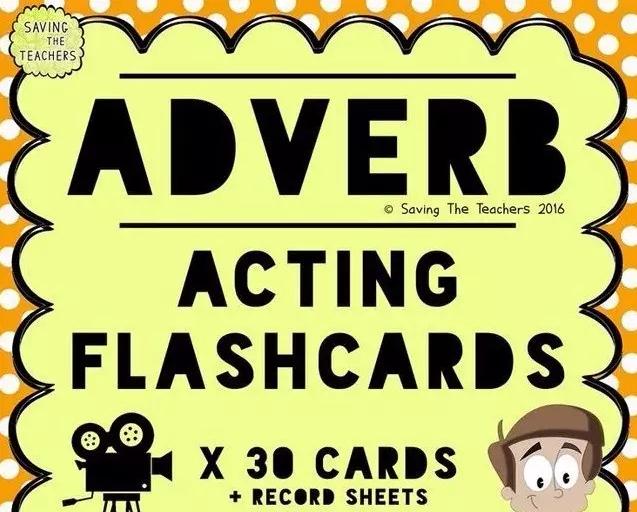
看了前几篇文章内容paperdaixie.com我坚信留学人员们针对介词的了解一定拥有更刻骨铭心的了解,今日结束的另外再给大伙儿填补几个方面。期待学生们为了更好地自身的essay创作可以坚持不懈看了并融汇贯通!
修饰语,分离出来词和连词
Adjuncts, Disjuncts, and Conjuncts
无论它的部位,介词常常都整齐地嵌在语句中。这类情况下,这一介词称之为修饰语。(留意这一段前几句的画线的修饰语和装饰介词。)
当介词不可以嵌进从句时,它称之为分离出来词或连词并且常常用分号分隔。
一个分离出来词常常具有点评以后剩下语句的用途。
尽管它常常装饰形容词,介词还可以装饰一全部从句。
(we could say that it modifies the entire clause, too.)
留意这儿“too”便是这句话语句中的分离出来词。
too还可以变为一个副词修饰词:It’s too hot to play outside. 一下是此外2个分离出来介词:
• Frankly, Martha, I don't give a hoot.
• Fortunately, no one was hurt.
Regardless of its position, an adverb is often neatly integrated into the flow of a sentence. When this is true, as it almost always is, the adverb is called an adjunct. (Notice the underlined adjuncts or adjunctive adverbs in the first two sentences of this paragraph.) When the adverb does not fit into the flow of the clause, it is called a disjunct or a conjunct and is often set off by a comma or set of commas. A disjunct frequently acts as a kind of evaluation of the rest of the sentence. Although it usually modifies the verb, we could say that it modifies the entire clause, too. Notice how "too" is a disjunct in the sentence immediately before this one; that same word can also serve as an adjunct adverbial modifier: It's too hot to play outside. Here are two more disjunctive adverbs:
• Frankly, Martha, I don't give a hoot.
• Fortunately, no one was hurt.
在另一方面,连词,在写作中起着联接的功效,意味着不一样念头的衔接。
• If they start smoking those awful cigars, then I'm not staying.
• We've told the landlord about this ceiling again and again, and yet he's done nothing to fix it.
这一类型中最完美的纯碎用于联接的词称之为融合状语:
• Jose has spent years preparing for this event; nevertheless, he's the most nervous person here.
• I love this school; however, I don't think I can afford the tuition.
Conjuncts, on the other hand, serve a connector function within the flow of the text, signaling a transition between ideas.
• If they start smoking those awful cigars, then I'm not staying.
• We've told the landlord about this ceiling again and again, and yet he's done nothing to fix it.
At the extreme edge of this category, we have the purely conjunctive device known as the conjunctive adverb (often called the adverbial conjunction):
• Jose has spent years preparing for this event; nevertheless, he's the most nervous person here.
• I love this school; however, I don't think I can afford the tuition.
一些特殊情况
The adverbs enough and not enough usually take a postmodifier position:
介词“enough”和“not enough”一般 作后置定语:
• Is that music loud enough?
• These shoes are not big enough.
• In a roomful of elderly people, you must remember to speak loudly enough.
(Notice, though, that when enough functions as an adjective, it can come before the noun:
留意,当enough当做修饰词的情况下,,它还可以放到专有名词的前边:
• Did she give us enough time?
The adverb enough is often followed by an infinitive:
介词enough常常跟在连系动词的后边:
• She didn't run fast enough to win.
The adverb too is often followed by an infinitive:
介词too常常跟在连系动词的后边:
• She runs too slowly to enter this race.
The adverb too comes before adjectives and other adverbs:
介词too放到修饰词和别的介词的前边:
• Yasmin works hard. She works quickly, too.
Another common construction with the adverb too is too followed by a prepositional phrase — for the object of the preposition — followed by an infinitive:
此外一个介词too的普遍化学结构式too再加上一个介词短语—for加代词目标—跟随一个连系动词
• This milk is too hot for a baby to drink.
关系副词
Relative Adverbs
定语从句有时候会由关系副词正确引导:where, when, 和why。尽管全部从句是定语从句而且会装饰一个专有名词,关系词自身当做着副词的作用(在从句内装饰一个形容词)
关系副词where正确引导着一句装饰地址专有名词的从句
• My entire family now worships in the church where my great grandfather used to be minister.
关系代词“where”装饰形容词“used to be”(因此 where是有介词词性的),但全部从句 “where my great grandfather used to be minister”) 装饰了英语单词“church”
一个when从句装饰关于时间的专有名词
• My favorite month is always February, when we celebrate Valentine's Day and Presidents' Day.
一个why从句装饰一个有关原因的专有名词
• Do you know the reason why Isabel isn't in class today?
大家有时候会在那样的从句中分隔关系副词,此外很多人喜爱在从句选用that取代why
• Do you know the reason why Isabel isn't in class today?
• I always look forward to the day when we begin our summer vacation.
• I know the reason that men like motorcycles.
Adjectival clauses are sometimes introduced by what are called the relative adverbs: where, when, and why. Although the entire clause is adjectival and will modify a noun, the relative word itself fulfills an adverbial function (modifying a verb within its own clause).
The relative adverb where will begin a clause that modifies a noun of place:
• My entire family now worships in the church where my great grandfather used to be minister.
The relative pronoun "where" modifies the verb "used to be" (which makes it adverbial), but the entire clause ("where my great grandfather used to be minister") modifies the word "church."
A when clause will modify nouns of time:
• My favorite month is always February, when we celebrate Valentine's Day and Presidents' Day.
And a why clause will modify the noun reason:
• Do you know the reason why Isabel isn't in class today?
We sometimes leave out the relative adverb in such clauses, and many writers prefer "that" to "why" in a clause referring to "reason":
• Do you know the reason why Isabel isn't in class today?
• I always look forward to the day when we begin our summer vacation.
• I know the reason that men like motorcycles.
见解,聚焦点和否定副词
Viewpoint, Focus, and Negative Adverbs
一个见解介词一般 放到一个专有名词后边而且和放到哪个专有名词前边的修饰词有关系
• A successful athletic team is often a good team scholastically.
• Investing all our money in snowmobiles was probably not a sound idea financially.
你常常在这种场景中会听见一些例如“scholastically speaking”或 “financially speaking”,但英语单词“speaking”基本上不用。
一个聚焦点介词说明了它联接了的一部分被重点强调了,一个聚焦点介词会限定句意("He got an A just for attending the class.")或当做一个防腐剂("He got an A in addition to being published.”)
尽管好像否定词“not”和“never”常常嵌在形容词中
—"He has never been much help to his mother.”—
她们并并不是形容词的一部分。她们实际上是介词。
殊不知,一个说白了的否定副词在语句中造就的否认含意友谊常见的no/not/neither/nor/never构造所不一样。
• He seldom visits.
• She hardly eats anything since the accident.
• After her long and tedious lectures, rarely was anyone awake.
A viewpoint adverb generally comes after a noun and is related to an adjective that precedes that noun:
• A successful athletic team is often a good team scholastically.
• Investing all our money in snowmobiles was probably not a sound idea financially.
You will sometimes hear a phrase like "scholastically speaking" or "financially speaking" in these circumstances, but the word "speaking" is seldom necessary.
A focus adverb indicates that what is being communicated is limited to the part that is focused; a focus adverb will tend either to limit the sense of the sentence ("He got an A just for attending the class.") or to act as an additive ("He got an A in addition to being published.”)
Although negative constructions like the words "not" and "never" are usually found embedded within a verb string — "He has never been much help to his mother." — they are technically not part of the verb; they are, indeed, adverbs. However, a so-called negative adverb creates a negative meaning in a sentence without the use of the usual no/not/neither/nor/never constructions:
• He seldom visits.
• She hardly eats anything since the accident.
• After her long and tedious lectures, rarely was anyone awake.
有关在essay创作中介词的方式和应用就临时告一段落了,paperdaixie.com我期待学生们看了以后essay写作能力挺大提高!必须essay代笔的同学们能够在线留言的在线客服!你只需动动鼠标,或是动动拇指,就能轻轻松松处理各种各样出国留学的难点。留学咨询、出国留学申请、留学申请、原材料汉语翻译,大家的服务项目全是全年无休的,质量和高效率都能考虑您的要求。
微信客服1:essay-kathrine
微信客服2:essay-gloria




发表回复
要发表评论,您必须先登录。